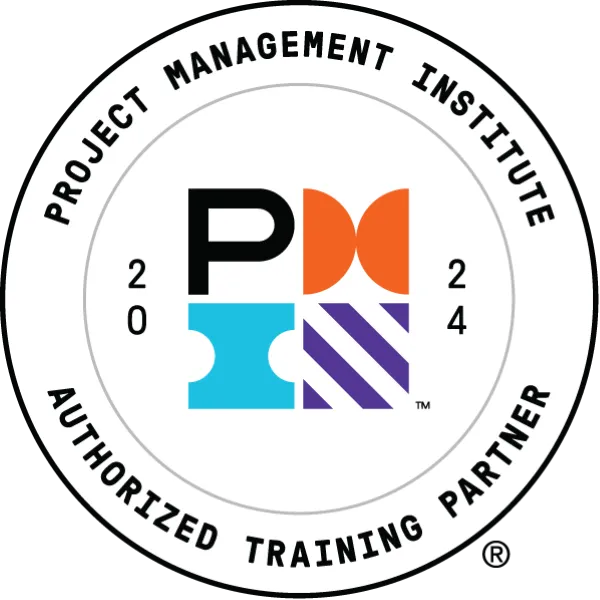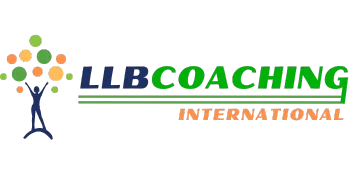
Premier Authorized Training Partner (ATP) of the
Project Management Institute®
Intensive Boot Camp for
Project Management Professional (PMP®) Certification Preparation
Increase Efficiency and Income with the Global Standard in Project Management Certification
The world is your classroom: Attend live classes from any web browser or connected device
Includes class materials from the Project Management Institute
(PMI®)Receive contact hours needed to take the PMP exam

Overview
Becoming PMP® certified signifies more than just a credential; it represents a commitment to excellence in project management. As a globally recognized certification, PMP® equips professionals with the knowledge, skills, and techniques needed to lead projects effectively and deliver results that align with organizational objectives. Holding a PMP® certification opens doors to new opportunities, enhances credibility in the field, and demonstrates mastery of industry best practices. Whether navigating complex projects or driving innovation within teams, PMP® certification empowers individuals to work with confidence, efficiency, and a strategic mindset, ultimately contributing to their personal and professional growth.
Why Get Certified?
Certification serves as a testament to your expertise and proficiency in a particular field, offering numerous benefits:
Validation of Skills: Certification validates your skills and knowledge, providing external recognition of your expertise.
Career Advancement: Certification can open doors to new career opportunities, promotions, and higher salaries by demonstrating your commitment to professional development and excellence.
Competitive Advantage: In competitive job markets, certification sets you apart from other candidates, giving you a competitive edge.
Industry Recognition: Being certified enhances your credibility and reputation within your industry, earning respect from peers, employers, and clients.
Personal Growth: Pursuing certification often involves acquiring new skills and knowledge, leading to personal growth and professional satisfaction.
Global Opportunities: Many certifications are recognized internationally, expanding your job prospects.

Keeping Current: Maintaining certification often requires ongoing education and staying up-to-date with industry trends, ensuring that your skills remain relevant in a rapidly evolving landscape.
In essence, certification is an investment in yourself and your future, providing tangible benefits that can propel your career forward.
Our Career Coaching Services
Transforming careers through personalized coaching and strategic guidance.
Career Assessment
and Exploration
Identify your strengths, interests, and values to explore potential career paths aligned with your aspirations. Gain clarity and confidence in making informed career decisions.

Coaching Corner - "The Wise PM"

How to Ace Your PMP® Certification Exam: Tips and Strategies (and Keep Your Sanity)
Hey there, future PMP® rock stars! "The Wise PM" here, ready to pump you up and guide you through the wild and wonderful journey of acing your PMP® certification exam. Buckle up, because we’re about to dive into tips, strategies, and a few laughs along the way. Let’s do this!
1. Know Your Why (and Keep Reminding Yourself)
First things first, why do you want to get PMP® certified? Maybe it’s for career advancement, a pay raise, or just to impress your cat. Whatever your reason, keep it front and center. Write it down, put it on your fridge, tattoo it on your arm—whatever it takes to stay motivated when you’re knee-deep in study materials and wondering if it’s all worth it. Spoiler alert: It is.
2. Get the Right Study Materials (Not Your Neighbor’s Notes)
Choosing the right study materials is like choosing the right shoes—you want something that fits and won’t give you blisters. Invest in a reputable PMP® exam prep book, enroll in a training course (shameless plug: I happen to know a great one), and don’t forget about online resources. Avoid borrowing your neighbor’s notes from 1995; the PMBOK® Guide has changed a bit since then.
3. Create a Study Plan (and Stick to It, Mostly)
You need a study plan that’s as solid as your grandma’s fruitcake. Break down the PMBOK® Guide into manageable chunks and set a study schedule. Aim for consistency—daily study sessions are more effective than cramming the night before. But hey, life happens. If you miss a day, don’t beat yourself up. Just get back on track and keep moving forward.
4. Understand the PMBOK® Guide (Yes, All of It)
The PMBOK® Guide is your new best friend. Sure, it’s dense, and sometimes it reads like stereo instructions, but understanding it is crucial. Focus on the five process groups, ten knowledge areas, and 49 processes. Make flashcards, draw mind maps, or compose a PMBOK® rap if that helps you remember. Whatever works, my friends.
5. Practice, Practice, Practice (Like You’re Training for the Olympics)
Taking practice exams is like training for the Olympics, except you don’t have to wear spandex (unless you want to, no judgment). Practice exams help you get familiar with the format, timing, and types of questions you’ll face. They also highlight areas where you need more study. Aim to take several full-length practice tests and analyze your results. And remember, if at first, you don’t succeed, try, try again.
6. Join a Study Group (or Create One)
Studying alone can be like shouting into the void. Join a study group or form one with fellow PMP® aspirants. Discussing concepts, quizzing each other, and sharing resources can make studying more effective and less lonely. Plus, you’ll have someone to celebrate with when you all pass the exam. Group hug, anyone?
7. Master Time Management (Not Just for the Exam)
Time management isn’t just a project management skill; it’s a life skill. During your study sessions, practice managing your time effectively. Break your study time into focused intervals (hello, Pomodoro Technique!) and take regular breaks to avoid burnout. And during the exam, pace yourself. Don’t spend 20 minutes on one question—mark it, move on, and come back if you have time.
8. Stay Healthy (Mind, Body, and Soul)
Studying for the PMP® exam can be stressful, but don’t neglect your health. Eat nutritious meals, get regular exercise, and make time for relaxation. Meditation, yoga, or just binge-watching your favorite show can help keep stress at bay. And don’t forget to sleep—pulling all-nighters might work in college, but your brain needs rest to function at its best.
9. Test Day Strategies (Game On!)
The big day has arrived! Get a good night’s sleep, eat a healthy breakfast, and arrive early at the test center. Bring your ID, exam confirmation, and any allowed items. During the exam, read each question carefully and eliminate obviously wrong answers. Trust your preparation, stay calm, and remember to breathe. You’ve got this!
10. Celebrate Your Success (You Deserve It)
You did it! You’ve aced the PMP® exam and joined the ranks of certified project management pros. Take a moment to celebrate your hard work and dedication. Treat yourself to something special, share your success with friends and family, and maybe even update your LinkedIn profile with your shiny new certification. You’ve earned it!
Conclusion
Acing the PMP® certification exam is no small feat, but with the right mindset, preparation, and a good sense of humor, you can do it. Remember to stay focused, stay motivated, and keep your eye on the prize. And when in doubt, just channel your inner "Large and In Charge" PM and shout, “I’ve got this!”
Now go out there and show that PMP® exam who’s boss. You’re unstoppable!
STILL NOT SURE?
Frequently Asked Questions
What can I expect from my first career coaching session?
In your first session, you'll discuss your career goals, challenges, and aspirations. The coach will assess your current situation and begin to outline a personalized action plan tailored to your specific needs.
How often will I meet with my career coach?
You typically meet with your career coach once a week or bi-weekly. Sessions can be adjusted to fit your schedule and the intensity of the coaching required, ensuring flexibility and effectiveness.
What are the benefits of career coaching?
Career coaching offers numerous benefits, including providing clarity and direction in one's career, enhancing job search strategies, and improving interview skills. It helps develop key professional skills and increases self-awareness, which are crucial for long-term career success and fulfillment. Coaches also offer personalized support and accountability, helping individuals navigate career transitions and expand their professional networks.
Can career coaching help with career transitions?
Yes, career coaching can be particularly valuable during career transitions. Coaches provide support and guidance that help individuals navigate changes more effectively. They assist in identifying transferable skills, refining resumes, and developing strategies for entering new industries or roles. Additionally, career coaches can offer insights into the market dynamics of new fields, help expand professional networks, and improve interview techniques, all of which are crucial for a successful transition. This personalized support can greatly reduce the stress associated with such changes and increase the likelihood of achieving career goals in the new field.
Do you offer support for negotiating job offers?
We provide comprehensive support to help you effectively negotiate job offers. Through detailed market research and personalized assessment, we help you understand your worth and articulate it confidently. Together, we'll strategize on how to approach negotiations, focusing on key aspects like salary, benefits, and role responsibilities to ensure you secure a competitive and satisfactory offer.
Is career coaching suitable for executives and senior professionals?
Yes, career coaching is highly beneficial for executives and senior professionals looking to enhance leadership skills, manage complex challenges, or navigate career transitions effectively.
What tools and resources do career coaches provide?
Coaches provide a variety of tools and resources, including personality and skills assessments, resume and LinkedIn profile optimization tools, interview preparation techniques, and network-building strategies.
How long does a career coaching engagement typically last?
A typical career coaching engagement lasts between three to six months, depending on individual goals and progress.
What qualifications and experience do your coaches have?
Our coaches are certified professionals with extensive experience in career development. They hold certifications from recognized bodies such as the International Coach Federation (ICF), the Project Management Institute (PMI) and have backgrounds in various industries, ensuring tailored and insightful guidance for clients across different career stages and sectors.
How can career coaching help me advance in my current job?
Career coaching can help you advance in your current job by identifying and developing key skills, setting achievable career goals, and enhancing your professional visibility and network. Coaches provide personalized feedback and strategies to improve performance and prepare for promotions, ensuring you effectively demonstrate your value and potential to your employer.
What is the success rate of your career coaching services?
Our coaching services have a strong track record of success, with many clients achieving significant career advancements, securing desired job roles, and reporting increased job satisfaction and personal growth.
COMPANY
CUSTOMER CARE
CUSTOMER CARE
NEWS
LEGAL

Copyright 2024. Stolte Alliance. All Rights Reserved.
